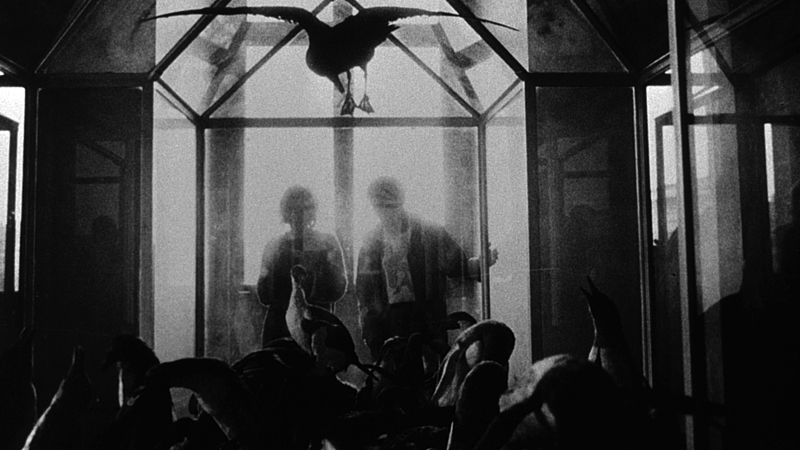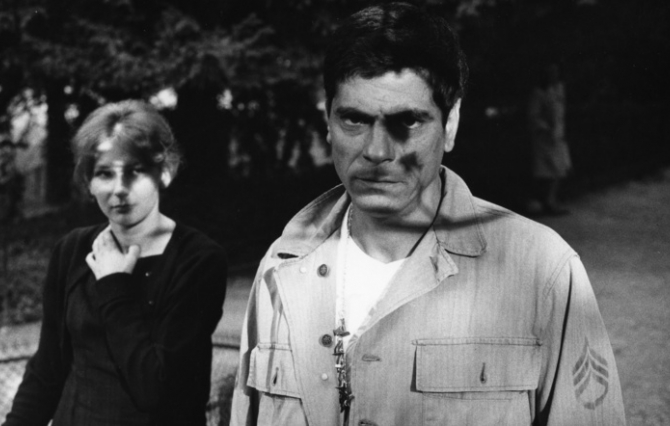A year on from Chris Marker's death, Andrew R. Hill looks at his revolutionary and influential short La Jetée.
Image courtesy of Criterion.
Chris Marker’s La Jetée (1962) is both one of the simplest and one of the strangest science fiction films you are ever likely to see, but to pigeonhole the film with such a generic marker is arbitrary and simplistic – while time travel is central to the story, it serves as a narrative device to explore the natures of memory and obsession.
The form of La Jetée is extraordinary even now, over fifty years on: a sequence of black and white stills narrated in a brooding Gallic third person monologue (augmented by minimal diegetic sound effects) over the course of twenty-seven minutes. This can seem pretentious or just downright dull on initial approach but one settles into it fairly quickly. The film opens with a scene that haunts and obsesses our protagonist from its occurrence in his childhood through to the post-apocalyptic Parisian ‘present’. The man at the story’s centre is used by the victors of the Third World War as the subject of an experiment in time-travel – humanity’s spatial options have expired, only temporal ones remain.
Image courtesy of the BFI.
The man has to travel to the past by using his memory – it is surely for this reason that the film’s imagery is presented as it is, for what is a photo if not a memory? This film is a photobook in which the man returns to the time of the film’s opening sequence, the event that has obsessed him his whole life. Through the experiment the man enacts a strange courtship with a young woman that was there on the day seared into his memory, albeit then a stranger.
On one of their meetings (separated by gaps in her time, as well as his, as they are) they visit a cross-section of a giant redwood with historical events pinpointed on its rings, just as in Alfred Hitchcock’s 1958 masterpiece Vertigo; this explicit reference unveils other key notions at the centre of the film, the sometimes traumatic nature of memory, male obsessiveness and the dangerous effects both can have, particularly when they coincide. The idea of being ‘haunted’ or of ‘haunting’ are unavoidably applicable in analyses of Vertigo and so it should be for La Jetée; James Stewart’s Scottie is haunted by his ‘lost’ Madeleine (in itself a reference to Marcel Proust’s À la recherche du temps perdu) just as La Jetée’s protagonist is haunted by the day from his childhood, and just as he haunts the young woman through their unusual courtship, appearing and disappearing as if an apparition. As with Vertigo, the film concludes with a fatality that could have been avoided were it not for the protagonist’s selfish single-mindedness. La Jetée’s images haunt the viewer too, lingering on to unveil their truth in the memory.







